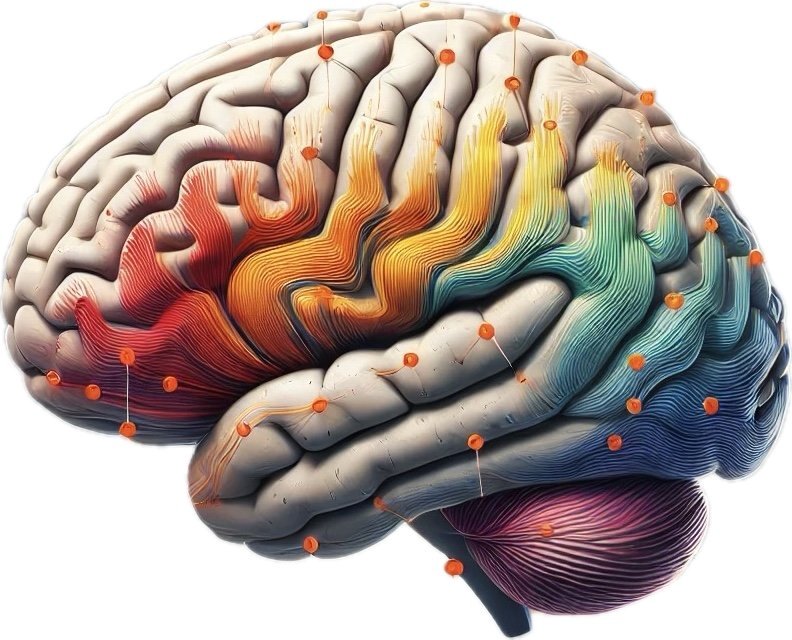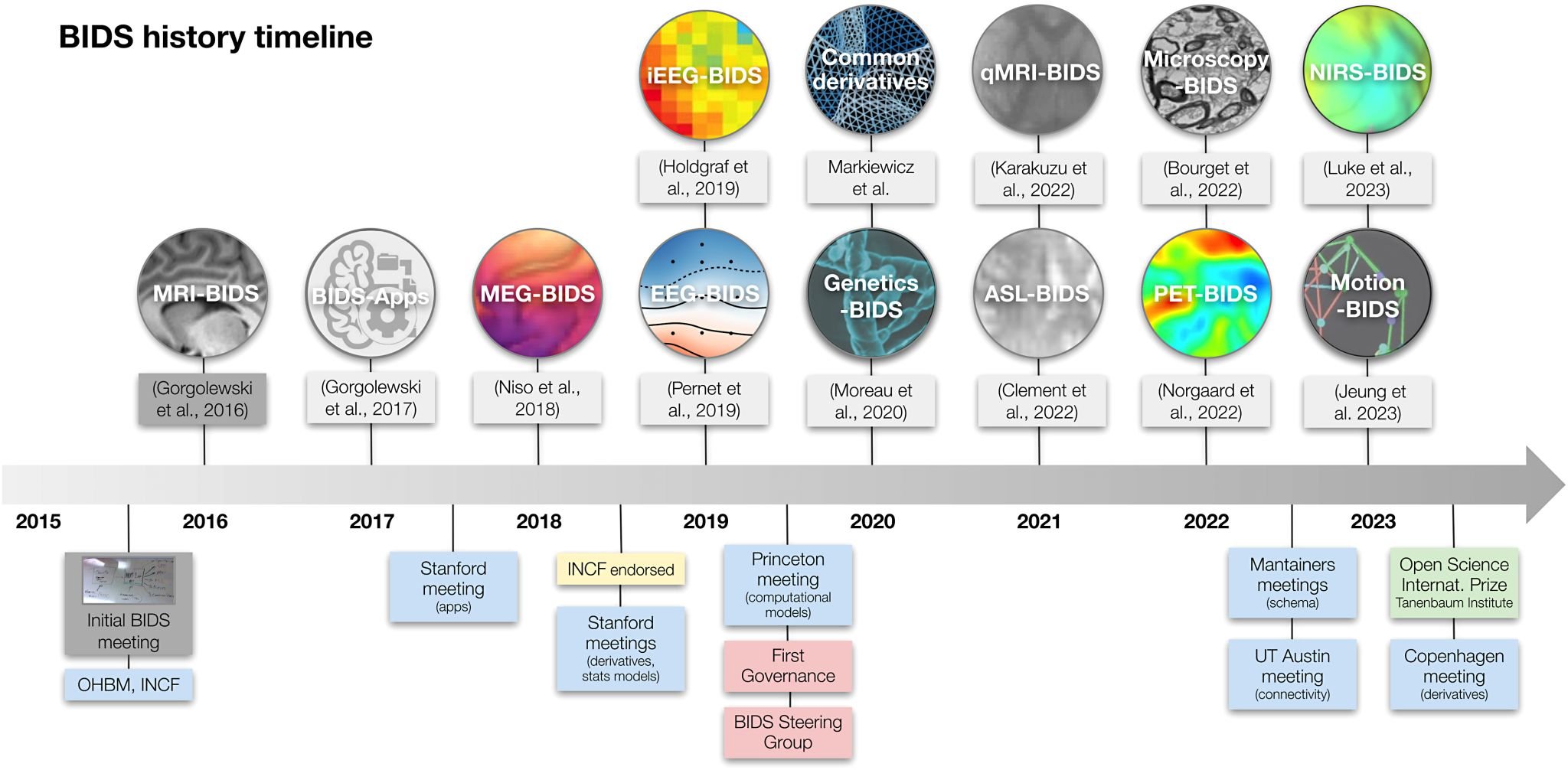

How Tiny Eye Movements Reveal the Fragility of Visual Perception
Our latest study, led by grad student Max Levinson and published in the Journal of Vision, explores why our conscious perception often does not match the physical world accessible to our senses. Using high-resolution eye-tracking, we found that microsaccades—tiny involuntary eye movements—reset visual illusions and restore physical perception.

One Last Slide from the Chair
As OHBM 2025 concludes in Brisbane, outgoing Chair Sylvain Baillet reflects on three decades of the Organization’s evolution—from his first poster session as a graduate student in Paris in 1995 to the vibrant, collaborative community it is today.

Probing Language Brain Processes in Psychosis
Backed by a $9.8M transformative grant from the Wellcome Trust, we are joining the DIALOG initiative to uncover how the brain predicts language in real time. Using MEG and AI-based language models, our team will help reveal the neural roots of disorganized speech in psychotic disorders.

A Landmark Collaboration to Probe the Foundations of Consciousness.
The first major study from the Cogitate Consortium is out today in Nature. Our lab collaborated on this unprecedented international effort to put leading theories of consciousness to the test—using a fully preregistered, adversarial collaboration approach across multiple brain imaging modalities.
The results challenge long-held assumptions and mark a new chapter for rigorous, open, and collaborative neuroscience.

How Electrophysiology Informs Deep Brain Stimulation
We publish in npj Parkinson’s Disease a collaborative #openaccess review on how electrophysiological brain recording and imaging at multiple scales, from cells to large-scale brain networks, contribute to defining neurostimulation targets.

How Auditory-Motor Networks Synchronize Sound and Movement
Our first published collaboration of 2025, led by Oscar Bedford in the Zatorre lab, demonstrates that human auditory-motor networks exhibit stronger default coupling than visuomotor networks, with a notable right-hemisphere predominance. Building on prior findings, including those from our lab, the study confirms that motor cortex exerts a top-down influence on auditory regions, particularly in the beta frequency band. These findings highlight intrinsic brain network mechanisms enabling low-latency auditory-motor integration, a key process for the synchronized coordination of sounds and movements.

The Neurochemistry of Brain Rhythms: Alterations Affecting Attention and Motor Capacity in Parkinson’s Disease
Our latest study published in Brain uncovers the link between changes in brain rhythms and neuromelanin in the brainstem of patients with Parkinson’s disease. These findings were made possible thanks to the combination of neuromelanin-sensitive MRI with advanced magnetoencephalographic imaging (MEG), and the participation of dozens of engaged patient volunteers and healthy controls.

A Breakthrough in Sustainability at The Neuro’s MEG Unit
We are proud to share a major achievement from the MEG Unit at The Neuro. In response to soaring helium costs and global shortages, we installed a custom helium recovery system that significantly reduces waste and environmental impact. This new bespoke system cuts helium purchases by 90% and CO2 emissions by over 12 tons in the first year. This milestone, supported by contributions from the Brain Canada Foundation, McGill units, and dedicated researchers, ensures sustainable, reliable operations for groundbreaking neuroscience research.

Announcing Release 3 of The Open MEG Archives (OMEGA)
We're thrilled to announce the latest expansion of The Open MEG Archives (OMEGA). Dive into over 150 hours of task-free MEG recordings from 644 participants, including individuals with Parkinson’s disease, ADHD, chronic pain, and 444 healthy controls. This rich dataset also includes defaced structural MRI volumes and individual questionnaire data. Don't miss this opportunity to accelerate your neuroscience research!

Early brain activity changes in healthy adults, linked to Alzheimer’s proteins, predict cognitive decline.
In our new Nature Neuroscience study, we have discovered that early changes in brain activity respectively related to amyloid-beta and tau buildup can predict cognitive decline years before symptoms appear, offering hope for early detection of Alzheimer’s. The study also highlights the potential of short MEG scans to identify those at risk long before memory loss sets in.

A love letter to the human brain mapping community.
As Chair of the Organization for Human Brain Mapping Council, Sylvain shares his vision for fostering a thriving neuroimaging community. He emphasizes addressing challenges like economic disparities, environmental sustainability, and expanding the scope of brain mapping while encouraging global engagement of all members of the Organization.

The Neurochemical Landscape of Alzheimer’s Disease.
Our latest study investigates how changes in brain activity align with the distribution of neurotransmitters in Alzheimer’s disease. Published in open access by Alzheimer’s & Dementia, our research found that these changes are closely linked to areas rich in cholinergic receptors, which are also where amyloid-β plaques tend to accumulate. This alignment is connected to the severity of Alzheimer’s cognitive symptoms, offering new insights into potential diagnostic markers and therapeutic targets.

Welcoming Dr Lindsey Power as new CIHR postdoctoral researcher.
Welcoming Dr. Lindsey Power as new CIHR postdoctoral fellow.

The brain-fingerprint of Parkinson’s disease.
Our lab publishes in the journal eBiomedicine, which is part of The Lancet group, a new study that reveals distinct patterns of brain activity that differentiate individuals with Parkinson’s disease.

Lab’s open science contributions recognized by two awards.
We are grateful for receiving two awards from the Tanenbaum Open Science Institute. Emma Lacoume was awarded the Open Science Launchpad Award, while Principal Investigator Sylvain Baillet received the Open Science Leadership Award, both from the Tanembaum Open Science Institute.

Jason receives Governor General’s Gold Medal.
👏 A huge congratulations to our lab graduate, Jason da Silva Castanheira, PhD, for his exceptional achievements at McGill University’s 2023-2024 convocation! Jason was honored with two prestigious awards, including the Governor General’s Gold Medal, recognizing top graduates across all disciplines.

Seven lab trainees receive awards to support their research work.
Congrats to seven of our lab members who were recently awarded graduate and postgraduate scholarships and fellowships to support their research work!

Max Levinson, PhD.
Congratulations to Dr Max Levinson on his successful PhD defense! We wish him the best as he embarks on his next research chapter at New York University.

Brain Imaging Data Structure (BIDS): a retrospective.
We are both happy and proud to have played a little part (MEG-BIDS) in this collective effort to promote collaboration and structured data sharing in neuroimaging research. New retrospective paper just published by MIT Press' Imaging Neuroscience.

Jason da Silva Castanheira graduates from his PhD.
Today, Jason brilliantly defended his PhD thesis in Neuroscience and became one new neuroSPEED PhD graduate!